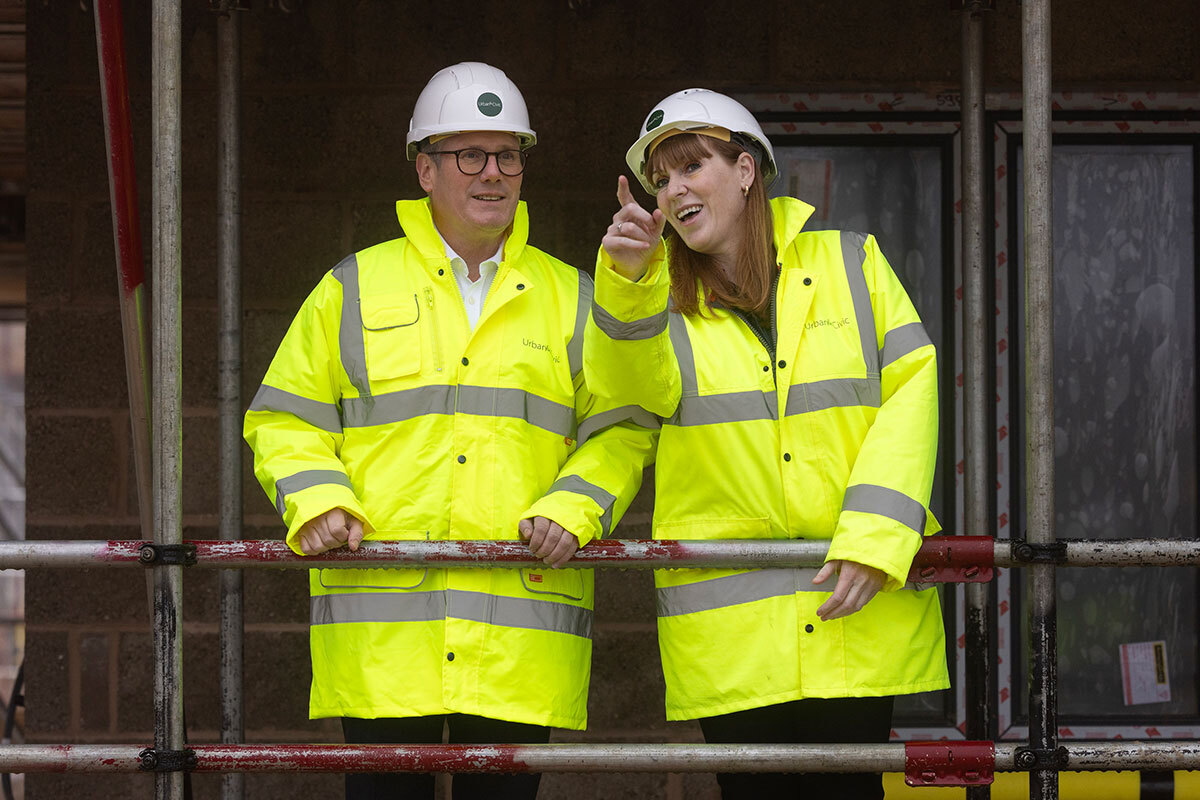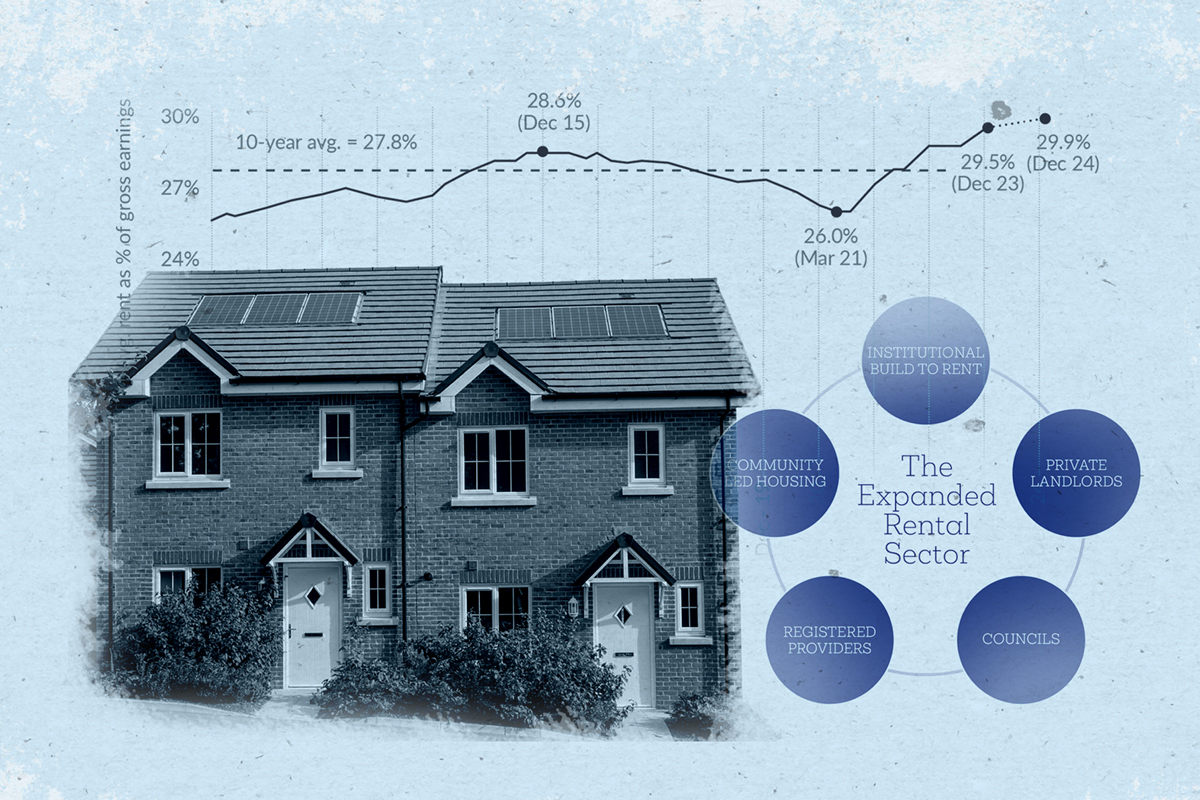You are viewing 1 of your 1 free articles
The Week in Housing: Labour finalises new NPPF, and social housing gets £81m boost in Wales
The Week in Housing is our weekly newsletter, rounding up the most important headlines for housing professionals. Sign up below to get it direct to your inbox every Friday

Good afternoon.
The government’s long-awaited changes to the National Planning Policy Framework (NPPF) were published this week, including an additional £100m for council planners. But Labour has dropped its mooted 50% affordable housing target on green belt land.
The reforms have been warmly welcomed across the sector, although concern remains about the overall housing target.
Megan Hinch, senior policy and practice lead on planning at the Chartered Institute of Housing, said: “Planning reform alone won’t solve the housing crisis. We also need significant investment in the Spending Review to help the sector meet the government’s 1.5 million-homes target.”
Fiona Fletcher-Smith, chair of the G15 and chief executive of L&Q, called the reforms “a good start”.
“We need a decade-long rent settlement, equal access to the Building Safety Fund, and a rent convergence mechanism. Without these measures, no amount of planning reform will deliver the affordable homes that London or the rest of the UK desperately need,” she added.
Prime minister Sir Keir Starmer and Angela Rayner, the deputy prime minister and housing secretary, announced the NPPF changes during a site visit at Urban&Civic’s Alconbury Weald development, where 6,500 homes will be delivered on a brownfield site.
Nigel Hugill, chief executive of Urban&Civic, was delighted with the pair’s attendance and said “the reintroduction of mandatory housing targets is the absolute foundation for higher numbers and a workable system”.
Inside Housing has looked into the NPPF changes in detail, and five key things we learned can be read here.
Ahead of the big splash on NPPF reforms, Ms Rayner also revealed plans to hand greater control of planning to metro mayors.
There was big news in Wales this week, as the government pledged an extra £81m in capital funding to build more homes for social rent in its draft Budget for 2025-26.
The money was announced just two days before the latest government data revealed that affordable housing provision in Wales dipped by 3% in 2023-24, with 3,255 affordable homes delivered across the country during the year.
TPAS Cymru called on the Welsh government to remove planning red tape, claiming it was preventing tenants from accessing affordable, energy-efficient heating, and delaying the nation’s net zero plans.
The Welsh government plans a consultation on permitted development rights, which will include air-source heat pumps, in early 2025. The draft Budget allocated £95m for decarbonising existing homes and £37.5m for warm homes.
In England, the government announced it would introduce changes to Energy Performance Certificates in the second half of 2026, as it looks to bolster its own Warm Homes Plan, which includes new standards for private rented homes by 2030.
The latest government figures in Northern Ireland revealed the temporary accommodation crisis is affecting all parts of the UK. There are 5,378 children in temporary accommodation here, a 121% increase since 2019.
The figures were published after leading sector organisations in Northern Ireland called on the country’s administration to provide more funding to avoid putting thousands of vulnerable people at risk.
In an open letter to ministers, the organisations warned that the pressures facing the housing and homelessness sectors had “never been more acute”.
Northern Ireland’s housing association sector reported a collective uptick in annual surplus and turnover despite a 21% drop in shared ownership sales and hike in costs.
In a bid to ease the temporary accommodation crisis in England, the Local Government Association has called for temporary accommodation subsidy rates to be uprated to 90% of the current Local Housing Allowance.
Tackling homelessness has been high on the political agenda since Labour was elected earlier this year. With that in mind, Inside Housing spoke to a number of organisations regarding what the social housing and homelessness sector can learn about how to interact with people who have complex communication needs.
A row has broken out in Scotland between a city council and a homelessness charity. Shelter Scotland has called for the leadership of the City of Edinburgh Council to be removed in a dispute over its use of unlicensed houses in multiple occupation and a request to relax homelessness laws.
Another row will go all the way to the Supreme Court, as Hexagon Housing Association will appeal in a legal battle with a contractor over late payments.
Build to rent (BTR) continues to generate interest, as one Essex-based house builder has agreed its first BTR deal forward-funded by Lloyds Living, the rental and shared ownership arm of the banking group.
Another developer will pay £3.5m towards providing affordable housing, after it received planning consent for a 376-home BTR scheme in Milton Keynes.
One major landlord revealed details of two residents who will join the group board as part of its governance restructure.
With many associations looking to give their residents a stronger voice within their organisations, the UK’s largest landlord Clarion published its latest annual tenants survey. It found that the cost of living pressures on social housing tenants show some signs of easing, but nearly six in 10 still only have enough for essentials.
The findings came after Clarion outlined plans for 60 well-being spaces as part of a new partnership with a charity.
Finally this week, the Housing Ombudsman has urged landlords to overcome their “alarming complacency” around hazards ahead of the introduction of Awaab’s Law.
Inside Housing also published our three-part series on consumer standards. You can start with the first part here, as we explain how the Regulator of Social Housing goes about inspecting social landlords.
Have a great weekend.
Stephen Delahunty, news editor, Inside Housing
Editor’s picks: five stories you may have missed
A day on site with MTVH’s new chief executive
Sustainability for Housing appoints Housemark to improve ESG reporting
Northern Housing Consortium appoints new chair and board members
Hertfordshire-based landlord names new chief executive
Specialist supported housing provider launches pilot with DWP
Sign up for our Week in Housing newsletter
Already have an account? Click here to manage your newsletters









